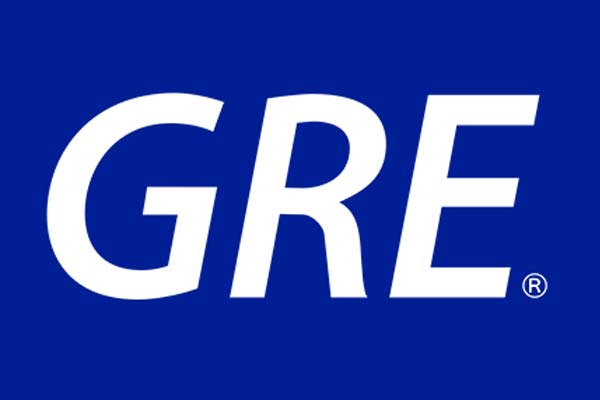IGCSE Subjects: Everything You Need to Know
The Cambridge IGCSE curriculum is divided into two parts: Core and Extended. The Core curriculum is designed for students with a wide range of abilities and comprises five compulsory subjects. The Extended curriculum allows students to choose two or three additional subjects to complete the qualifications.
Core Curriculum
The Core curriculum is tailored to be comprehensible for most students. It covers the following subjects:
- English as a Second Language
- Mathematics
- Science (Biology, Chemistry, Physics)
- Global Perspectives
The Core curriculum provides a foundation of core subjects that can be built upon with additional subjects from the Extended curriculum. It is important to note that students must pass all five subjects in the Core curriculum to receive the certificate.
Extended Curriculum
The Extended curriculum provides extra subjects for students who wish to surpass the primary Core curriculum. Students can pick two or three of these subjects to fulfill their qualifications. Available subjects in the Extended curriculum include:
- Accounting
- Art and Design
- Business Studies
- Computer Science
- Drama
- Economics
- Environmental Management
- French
- Geography
- History
- Information and Communication Technology
- Music
- Physical Education
- Spanish
It is important to note that the Extended curriculum is not a higher Core curriculum level. Instead, it allows students to explore additional subjects and broaden their knowledge base.
Content
The main topics of both the Core and Extended curriculums are grouped by subject. Take Mathematics as an example; it’s divided into four areas: numbers, algebra, shapes and spaces, and chances and data. The material must be set in a specific teaching sequence, allowing educators to tailor the course to their students’ requirements.
Main Subjects
The Cambridge IGCSE provides a range of subjects, letting students customize their learning based on their passions and future aspirations. The core areas of the IGCSE program include English, Math, Sciences, Humanities, and Practical Skills.
English
English is a mandatory course in the IGCSE program. It aims to enhance students’ reading, writing, and communication abilities. The course delves into language and literature, exploring different texts and styles. Students are evaluated based on their writing and understanding and interpretation of texts.
Mathematics
Mathematics is a mandatory subject in the IGCSE curriculum. It explores various math topics like geometry, algebra, and trigonometry. Students are tested on problem-solving, using math in real-life scenarios, and explaining their thought processes.
Sciences
The Sciences include Biology, Chemistry, and Physics. These subjects are designed to develop student’s scientific knowledge, understanding, and practical skills.
The syllabus covers various topics, from the basic principles of the subjects to more advanced concepts. Students will be assessed on their ability to apply scientific knowledge to real-world situations and their practical skills.
Humanities
The Humanities include Business Studies, Economics, Geography, and Sociology. These subjects are designed to develop students’ understanding of the social world and the economy.
The syllabus covers various topics, from the basic principles of the subjects to more advanced concepts. Students will be assessed on their ability to apply their knowledge to real-world situations and their critical thinking skills.
🌟 Hey Students! 🚀 Ready for the ultimate experience? Join us on Studentsinside.com's Facebook, YouTube, WhatsApp, and LinkedIn. Click now for tips, fun, and success vibes! 🌈✨ #StudentLife #JoinUs
Vocational Subjects
The Vocational Subjects include Chinese, Drama, French, Latin, and Malay subjects. These subjects are designed to develop student’s practical skills and knowledge in a specific area.
The syllabus covers various topics, from the basic principles of the subjects to more advanced concepts. Students are evaluated based on how well they use their knowledge and skills in real-life scenarios.
Skills Development
The Cambridge IGCSE program focuses on building various skills in students. These skills are crucial for both academic achievements and life after school.
The curriculum aims to develop learners’ problem-solving, critical thinking, and communication skills.
The skills development activities in the Cambridge IGCSE Global Perspectives program are designed to help learners develop these skills.
The program covers various topics, including family and demographic change, biodiversity and ecosystem loss, climate change, and fuel and energy.
Each subject offers activities to enhance learners’ problem-solving abilities and critical thinking.
In addition to the Global Perspectives program, the Cambridge IGCSE curriculum includes a range of subjects that help learners develop their skills.
For instance, subjects like Math and Science demand students to think deeply and tackle challenges. Meanwhile, subjects like English and History push students to express themselves clearly and scrutinize details.
Assessment and Grading
Understanding Grades
Assessment for Cambridge IGCSE subjects is based on both formative and summative evaluations. Formative assessments help students learn as they progress through a course.
Class participation, homework, quizzes, and projects are used to assess students. Summative assessments gauge a student’s grasp of the content once a course concludes.
For the Cambridge IGCSE, the course’s end is marked by summative assessments. These include written tests, oral presentations, coursework, and hands-on evaluations.
Cambridge IGCSE results are graded on a scale of A* to G, with A* being the highest grade. The grading system is designed to clearly and consistently indicate a student’s performance in a subject.
The grades are based on the student’s performance on the final examination and their coursework.
Past Examination Papers
Cambridge Assessment International Education provides past examination papers for all Cambridge IGCSE subjects. These papers are an excellent resource for students preparing for their final examinations.
Past papers allow students to practice their exam-taking skills and become familiar with the format and structure of the exam.
In addition to being a valuable resource for students, teachers can also use past papers to assess their students’ understanding of the material.
Teachers can use past papers to identify areas where their students struggle and adjust their teaching accordingly.
Resources and Support
Cambridge IGCSE provides an extensive array of support materials for every subject. These tools are crafted to assist teachers, parents, and students in organizing and executing the IGCSE curriculum with ease.
For teachers, Cambridge IGCSE provides teaching schemes of work, lesson plans, textbooks, and publisher resources. These materials are suitable for various teaching methods and different international contexts. Teachers can also find helpful resources, training, and advice from subject experts.
Parents can access the same resources as teachers, including textbooks and publisher resources. Additionally, parents can find online resources and study guides to help their children prepare for exams.
Tutopiya is a website that provides valuable resources for IGCSE notes and examination revision.
Students can find many resources to help them study for their IGCSE exams. Cambridge IGCSE provides past papers, mark schemes, and examiner reports that students can use to practice and improve their understanding of the subject.
Additionally, students can find online resources such as study guides, revision notes, and video tutorials to help them prepare for their exams.
Tutors can also find helpful resources to help their students prepare for IGCSE exams. Cambridge IGCSE provides training and support for tutors, including online courses and webinars.
Tutors can also find valuable resources such as past papers, mark schemes, and examiner reports to help their students practice and improve their understanding of the subject.
Choosing the Right Subjects
The proper IGCSE subjects are vital for a student’s academic and career future. It’s crucial to pick subjects that match the student’s passions, abilities, and career goals.
When selecting subjects, students should consider the following factors:
Choices
IGCSE offers a wide range of subjects to choose from. Students should explore options and select subjects that align with their interests and career aspirations. Choosing subjects they enjoy studying and have a passion for is advisable.
Balance
Students should aim for a balance of subjects across different disciplines. IGCSE has six core subjects, including Mathematics, Science, and Humanities. Apart from these, students can choose from multiple options depending on their future goals. Maintaining a balance between science and humanities subjects is essential to stay manageable in all areas.
Strengths
Students should choose subjects that align with their strengths and abilities. They must select subjects they are good at and enjoy studying. This approach can help them achieve better grades and excel in their chosen career path.
Interests
Students should choose subjects that align with their interests and hobbies. It is advisable to select subjects they find engaging and enjoyable to study. This approach can help them stay motivated and focused on their studies.
Chosen Career Path
When picking subjects, students should think about their future careers. It’s vital to select classes that match their job goals. For example, someone aiming for a medical career should choose subjects like Biology, Chemistry, and Physics.
Benefits and Opportunities
The IGCSE program offers many benefits and opportunities for students. The program is designed to provide students with a strong foundation in critical subjects, preparing them for advanced study and the IB Diploma program.
Here are some of the benefits and opportunities that the IGCSE program provides:
Development of life skills: The IGCSE curriculum aids students in cultivating crucial life skills like critical thinking, resolving problems, and communicating effectively. These abilities are indispensable for real-world success and are greatly appreciated by employers.
Increased confidence: Students feel accomplished and more sure of themselves by completing the IGCSE program. This newfound confidence can boost their performance in future studies and positively impact their personal and work lives.
Preparation for advanced study: The IGCSE program is an excellent preparation for advanced study, such as the IB Diploma program. The program provides students with a solid foundation in critical subjects, allowing them to build on this knowledge in future academic pursuits.
Opportunities for personalization: The IGCSE program offers a wide range of subjects, allowing students to personalize their education and pursue their interests. This can help students stay engaged and develop a love for learning.
Cultural context: The IGCSE curriculum offers students insights into various cultures and viewpoints, fostering a global outlook. This approach equips students with the understanding needed to thrive in a progressively interconnected world.
Fun and interest: The IGCSE curriculum offers diverse subjects, making learning engaging and motivating students.
Additional Mathematics
The IGCSE program presents a variety of subjects that students might find intriguing. This diversity makes the learning experience more enjoyable and keeps students engaged.
Among the subjects is Additional Mathematics. This course is tailored for students with a knack for math and ensures a seamless transition to the advanced Cambridge International AS & A Level Mathematics.
It aims to enhance students’ problem-solving skills and prepare them for further studies in math-intensive subjects.
The syllabus covers various topics such as numbers, application of numbers, algebra, graphs, geometry, mensuration, trigonometry, vectors, sets, probability, statistics, and calculus.
The course is designed to help learners develop their mathematical skills, including analyzing, interpreting, and communicating mathematical information.
The subject content is divided into three main areas: Pure Mathematics, Mechanics, and Probability and Statistics. Pure Mathematics covers algebra, functions, trigonometry, geometry, and calculus.
Mechanics covers topics such as kinematics, dynamics, and statics. Probability and Statistics cover probability, data analysis, and statistical inference.
Learners are expected to be able to apply mathematical methods to solve problems, recognize patterns and relationships, and interpret and communicate mathematical information.
They should also be able to work with mathematical symbols and expressions, use mathematical models to represent and solve problems and use calculators and other technological tools to aid in problem-solving.
The course emphasizes the importance of cross-curricular perspectives, encouraging learners to apply their mathematical skills in other subjects.
It also highlights the importance of developing critical thinking and problem-solving skills for success in various fields.
Examination Boards Offering IGCSE
Several examination boards offer IGCSE qualifications. These include Cambridge Assessment International Education, Pearson Edexcel, Oxford International AQA Examinations, and the Council for the Curriculum, Examinations and Assessment (CCEA).
Cambridge Assessment International Education
Cambridge Assessment International Education is one of the most popular examination boards offering IGCSE qualifications. It is a part of the University of Cambridge and provides many subjects.
They offer over 70 subjects, including languages, sciences, humanities, and vocational. Cambridge IGCSE qualifications are recognized by universities and employers worldwide.
Pearson Edexcel
Pearson Edexcel is another popular examination board that offers IGCSE qualifications. They provide various subjects, including languages, sciences, humanities, and vocational. Pearson Edexcel IGCSE qualifications are recognized by universities and employers worldwide.
Oxford International AQA Examinations
Oxford International AQA Examinations is a joint venture between AQA in the UK and Oxford University Press. They offer a range of subjects, including languages, sciences, humanities, and vocational subjects. Oxford International AQA Examinations IGCSE qualifications are recognized by universities and employers worldwide.
Council for the Curriculum, Examinations and Assessment
The CCEA is the examination board for Northern Ireland. They offer a range of subjects, including languages, sciences, humanities, and vocational subjects. CCEA IGCSE qualifications are recognized by universities and employers worldwide.







